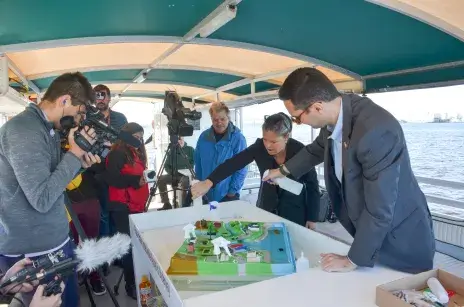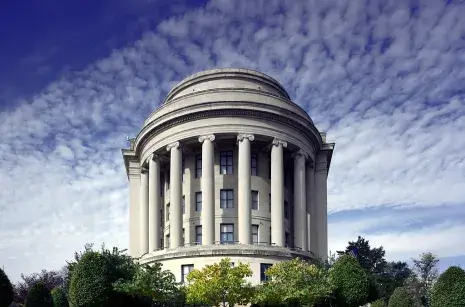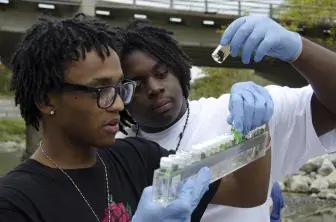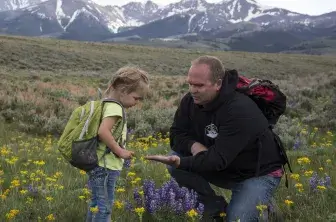Strategy 2: Engage and Educate
Combat Misinformation

Climate action is harder when public discourse is steeped in misinformation. Mass and social media can play a more active role in addressing incorrect information. Regulators, such as the Federal Trade Commission can help by strengthening enforcement of rules against false statements and advertising.
Fund, implement, and evaluate a national communication campaign to increase support for climate action.
Enforce false advertising laws and amend Federal Trade Commission (FTC) guidance on statements about climate change and the environment.
Encourage responsible journalistic coverage of climate change.
Encourage social media platforms and news media to fact check climate misinformation and to incorporate content promoting media literacy.
More recommendations
The media has a responsibility to convey information about climate change accurately. Despite this, some outlets have intentionally or unintentionally spread misconceptions (such as confusing weather for climate) or misinformation that complicates understanding.[i] The lack of clear, consistent messaging around climate change has created an information environment in which people require basic clarification about the need for action and the appropriate actions to take.[ii] Though the solutions proposed below focus on climate change, these are also effective remedies to combat the ongoing problems of misinformation in media more broadly.[iii]
Fund, implement, and evaluate a national communication campaign to increase support for climate action.
Though the public is becoming more accepting of the reality of climate change, many people still report confusion over which individual, local, and national and international actions will meaningfully contribute to solving the climate emergency. Misinformation promoting hopelessness about individual action or suggesting that additional consumption is a solution to the climate crisis feeds this confusion.[iv] To counteract such misinformation, this Commission urges the federal government and philanthropy to design and launch a nationwide climate campaign to credibly reach and inform all Americans and build the social and political will for urgent climate action. The design of such a campaign should take inspiration from the antismoking campaigns of the 1990s and early 2000s that increased public awareness of the dangers of smoking and built broad support for new regulations and penalties on the tobacco industry.
Enforce false advertising laws and amend Federal Trade Commission (FTC) guidance on statements about climate change and the environment.
Modern climate misinformation has shifted from climate denial to misleading consumers and activists about the environmental impacts of products or services.[v] In other countries, false claims have led to ads being banned and companies being fined, such as the sanctions incurred by the 2019 Ryanair ads falsely claiming that the company was the lowest-emission airline.[vi] Though similar provisions for false advertising exist within U.S. law, there are few cases where these have been successfully used.
For the first time since 2012, the FTC is currently amending its Green Guides for the first time since 2012 and is expected to add additional guidance about misleading environmental statements and better defining terms such as “organic” and “recyclable.”[vii] The updates will also include guidance on clear and accurate representation in claims about carbon offsets and renewable energy usage. The Commission strongly supports the FTC amending their guidelines to help motivated consumers make climate-informed choices about the products they purchase. Furthermore, the FTC rarely takes enforcement action using the Green Guides standards, having done so only thirty-six times since 2013.[viii] To increase accountability, the FTC must take more action to address false green marketing claims.
Encourage responsible journalistic coverage of climate change.
News outlets can help make climate change information digestible, factual, and locally relevant. Improving journalistic coverage of climate change has been a growing goal of mainstream news media and specialty journalism. With more than five hundred news partners around the world, from the largest media groups to some of the smallest, Covering Climate Now regularly collaborates with newsrooms and journalists to incorporate climate throughout news coverage and to create stories that encourage public conversation.[ix] The organization shares best practices and provides reporting resources.
Journalism organizations and news outlets are also broadening their climate coverage to be more relevant and appealing to their audiences. Climate Matters provides resources for meteorologists to incorporate climate content accurately in their coverage, integrating climate to discuss increases in the populations of mosquitos, the spread of poison ivy, and the likelihood of extreme weather.[x] These broadcasts improve public understanding of climate science and drive viewers to act.
Encourage social media platforms and news media to fact check climate misinformation and to incorporate content promoting media literacy.
Many Americans have shifted to social media as their primary source of news. These platforms are significant transmitters of misinformation about climate, health, and other issues because anyone can provide content, and many platforms’ business models rely on algorithms that attract readers into increasingly polarized bubbles.[xi] Social media platforms should expand their use of fact-checking and other evidence-based ways of controlling misinformation, such as highlighting climate consensus or stating accurate information first.[xii] Recently, the idea of responding to misinformation has been scrutinized, as even well-executed strategies do not change many minds.[xiii] However, misinformation that is not combatted will gain circulation and drive further public confusion and harmful actions. Recent “soft moderation” by Twitter and other social media platforms has led to a slight reduction in user’s tendency to share false information, but such tactics are not enough.[xiv]
[i] Kris M. Wilson, “Communicating Climate Change through the Media: Predictions, Politics and Perceptions of Risk,” in Environmental Risks and the Media, ed. Stuart Allan, Barbara Adam, and Cynthia Carter (London: Routledge, 2000), 217–233; Stephan Lewandowsky, Ullrich K. H. Ecker, and John Cook. “Beyond Misinformation: Understanding and Coping with the ‘Post-Truth’ Era,” Journal of Applied Research in Memory and Cognition 6 (4) (2017): 353–369; Jennifer Hoewe, Kathryn Cramer Brownell, and Eric C. Wiemer, “The Role and Impact of Fox News,” The Forum 18 (3) (2020): 367–388; Sharon Beder, “Lobbying, Greenwash and Deliberate Confusion: How Vested Interests Undermine Climate Change,” in Green Thoughts and Environmental Politics: Green Trends and Environmental Politics, ed. M. C-T. Huang and R. R-C. Huang (Taipei: Asia-seok Digital Technology, 2014), 297–328; and Katharine Hayhoe, Saving Us: A Climate Scientist’s Case for Hope and Healing in a Divided World (New York: One Signal Publishers/Atria Books, 2021).
[ii] Matthew J. Hornsey and Kelly S. Fielding, “Understanding (and Reducing) Inaction on Climate Change,” Social Issues and Policy Review 14 (1) (2020): 3–35.
[iii] Karishma Sharma, Feng Qian, He Jiang, et al., “Combating Fake News: A Survey on Identification and Mitigation Techniques,” ACM Transactions on Intelligent Systems and Technology (TIST) 10 (3) (2019): 1–42.
[iv] James Morton Turner, “From Woodcraft to ‘Leave No Trace’: Wilderness, Consumerism, and Environmentalism in Twentieth-Century America,” Environmental History 7 (3) (2002): 462–484; Timothy W. Luke, “The (Un)Wise (Ab)Use of Nature: Environmentalism as Globalized Consumerism,” Alternatives 23 (2) (1998): 175–212; and Kyongseok Kim and Sun Joo Ahn, “The Moderating Role of Cultural Background in Temporal Framing: Focusing on Climate Change Awareness Advertising,” Asian Journal of Communication 29 (4) (2019): 363–385.
[v] Ellis Jones, “Rethinking Greenwashing: Corporate Discourse, Unethical Practice, and the Unmet Potential of Ethical Consumerism,” Sociological Perspectives 62 (5) (2019): 728–754.
[vi] Ariadne Neureiter and Jörg Matthes. “Comparing the Effects of Greenwashing Claims in Environmental Airline Advertising: Perceived Greenwashing, Brand Evaluation, and Flight Shame,” International Journal of Advertising 42 (3) (2023): 461–487.
[vii] Federal Trade Commission, “Federal Trade Commission Extends Public Comment Period on Potential Updates to its Green Guides for the Use of Environmental Marketing Claims,” January 31, 2023,
https://www.ftc.gov/news-events/news/press-releases/2023/01/federal-trade-commission-extends-public-comment-period-potential-updates-its-green-guides-use.
[viii] Katie Fowler, “A Consumer’s Guide to Greenwashing” (marketing undergraduate honors thesis, University of Arkansas, 2023), https://scholarworks.uark.edu/mktguht/71.
[ix] Covering Climate Now, https://coveringclimatenow.org/.
[x] Teresa A. Myers, Edward W. Maibach, Bernadette Woods Placky, et al., “Impact of the Climate Matters Program on Public Understanding of Climate Change,” Weather, Climate, and Society 12 (4) (2020): 863–876.
[xi] Victor Le Pochat, Laura Edelson, Tom Van Goethem, et al., “An Audit of Facebook’s Political Ad Policy Enforcement,” Proceedings of the 31st USENIX Security Symposium, August 10–12, 2022, Boston, Massachusetts (Berkeley, Calif.: USENIX Association, 2022).
[xii] John Cook, Stephan Lewandowsky, and Ullrich K. H. Ecker, “Neutralizing Misinformation through Inoculation: Exposing Misleading Argumentation Techniques Reduces Their Influence,” PLOS ONE 12 (5) (2017): e0175799; and John Cook, “Countering Climate Science Denial and Communicating Scientific Consensus,” in Oxford Research Encyclopedia of Climate Science, ed. von Stork.
[xiii] Ullrich K. H. Ecker, Stephan Lewandowsky, John Cook, et al., “The Psychological Drivers of Misinformation Belief and Its Resistance to Correction,” Nature Reviews Psychology 1 (1) (2022): 13–29.
[xiv] Emily Vraga, Melissa Tully, and Leticia Bode, “Assessing the Relative Merits of News Literacy and Corrections in Responding to Misinformation on Twitter,” New Media and Society 24 (10) (2022): 2354–2371.




